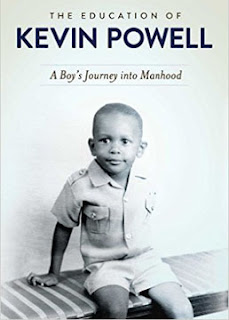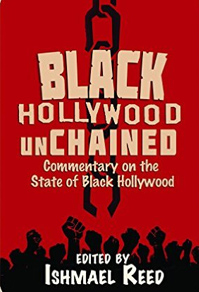Trump, Clinton, and Other Black Alliances

Resisting Arrest: poems to stretch the sky
By Mark Doty, Martin Espada, Joy Harjo, Marilyn Nelson, Ishmael Reed, Sonia Sanchez, Yusef Komunyakaa, Afaa Michael Weaver Rita Dove (Author), Tony Medina (Editor)
An anthology of poetry addressing violence against African-Americans featuring work by Jericho Brown, Kwame Dawes, Rita Dove, Cornelius Eady, Martin Espada, Ross Gay, Jaki Shelton Green, Joy Harjo, Patricia Spears Jones, Allison Joseph, Yusef Komunyakaa, Jamaal May, Thylias Moss, Marilyn Nelson, Ishmael Reed, Sonia Sanchez, Quincy Troupe, Frank X Walker, Afaa MIchael Weaver, Mark Doty and more. Edited by Tony Medina. Proceeds from the sales of this book will be donated to the "Whitney M. Young Social Justice Scholarship" sponsored by The Greater Washington Urban League, Thursday Network.
http://www.amazon.com/Resisting-Arrest-poems-stretch-sky/dp/0936481099/ref=nosim/?tag=chickenajourn-20
* * * * *
Cornel West: Trump is a “narcissistic neo-fascist
in the making” Clinton is a hawkish “milquetoast neoliberal”
Activism, the corporate media and Trump
Prof. West also addressed the dismal state of U.S. electoral politics and the tempestuous 2016 presidential election.
“This is the age of Ferguson, and some people are affected by some of the larger social movements that are taking place in different parts of the country, and much of the world,” West said, stressing the importance of activism.
Progressives should be “letting people know why it is that we have such limited options in terms of the ballot box and what forms of activism can we engage in to be thermostats and shape the climate of opinion, rather than just be thermometers and register and reflect that climate of opinion,” West said.
When asked why he thinks the political options are so limited, West blamed the capitalist system, emphasizing, “We’re ruled by big money.”
He slammed the corporate media that has enthusiastically profited from Trump’s meteoric rise.
“Trump is a Frankenstein of corporate media and there is no way he would have the status that he did if they didn’t cover every word, every tweet,” West explained.
“Of course the CEO of CBS made it very clear, very, very clear, that Donald Trump is bad for America but he is very good for us,” he added.
* * * * *

50 Cent cursed by Americans coz of supporting Trump
If you thought that it only happens in Uganda where people abuse, attack and hate people who have different political ideologies, calm down, that character started in the U.S and latest to fall a victim is 50 Cent who posted a photo with Donald Trump.
50 Cent was trumped more than 1000 times by angry Americans who think that no responsible person should support Donald Trump. In the photo posted by 50 Cent on his social media page, 50 Cent was with Donald Trump and he captioned it “Me and My President maybe, only in America”.
Fans started throwing abuses and insults as they say that their loyalty has ended, others said that they no longer respect him while one fan said that “He’s such an ugly piece of shit 50 cent You just lost allot of respect in my eyes.Donald trump is garbage” while another one said “I have officially lost all respect for you.”
Fans started throwing abuses and insults as they say that their loyalty has ended, others said that they no longer respect him while one fan said that “He’s such an ugly piece of shit 50 cent You just lost allot of respect in my eyes. Donald trump is garbage” while another one said “I have officially lost all respect for you”.
* * * * *
AIN’T I A WOMAN?
By Sojourner Truth
Delivered 1851 at the Women's Convention in Akron, Ohio
Delivered 1851 at the Women's Convention in Akron, Ohio
Well, children, where there is so much racket there must be something out of kilter. I think that 'twixt the negroes of the South and the women at the North, all talking about rights, the white men will be in a fix pretty soon. But what's all this here talking about?
I could work as much and eat as much as a man -- when I could get it - and bear the lash as well! And ain't I a woman? I have borne thirteen children, and seen most all sold off to slavery, and when I cried out with my mother's grief, none but Jesus heard me! And ain't I a woman?
Then they talk about this thing in the head; what's this they call it? [member of audience whispers, "intellect"] That's it, honey. What's that got to do with women's rights or negroes' rights? If my cup won't hold but a pint, and yours holds a quart, wouldn't you be mean not to let me have my little half measure full?
Then that little man in black there, he says women can't have as much rights as men, 'cause Christ wasn't a woman! Where did your Christ come from? Where did your Christ come from? From God and a woman! Man had nothing to do with Him.
If the first woman God ever made was strong enough to turn the world upside down all alone, these women together ought to be able to turn it back , and get it right side up again! And now they is asking to do it, the men better let them.
Obliged to you for hearing me, and now old Sojourner ain't got nothing more to say.—Feminist
* * * * *
* * * * *
Cornel West Says Civil Rights Leaders
That Support Hillary Clinton Have Lost Their Way
"There's no doubt that the great John Lewis of 50 years ago is different than the John Lewis today," West remarked. "He's my brother. I love him, I respect his personhood, but there's no doubt he's gone from a high moment of Martin Luther King-like struggle to now [a] neoliberal politician in a system that is characterized more and more by legalized bribery and normalized corruption. That's what big money does to politics. And the Clinton machine is an example of that."
Lewis' home state of Georgia will vote on Super Tuesday and has 116 delegates at stake, making it one of the most consequential states that will vote next week. In 2008, African-Americans made up more than half of Georgia's Democratic electorate.
West repeatedly referred to both Lewis and Rep. Jim Clyburn, who was also involved in the civil rights movement and now represents South Carolina in the House of Representatives, as "neoliberal politicians." The classification, he explained, refers to "a politics that proceeds based on financializing, privatizing, and militarizing."
West said that Clyburn and Lewis had become "too well adjusted to Wall Street." They are now a part of a system, he said, "in which politicians are well adjusted to injustice owing to their ties to big money, big banks, and big corporations, and turning their backs, for the most part, to poor people and working people. Poor people and working people become afterthoughts."
https://news.vice.com/article/cornel-west-says-civil-rights-leaders-that-support-hillary-clinton-have-lost-their-way
* * * * *



















